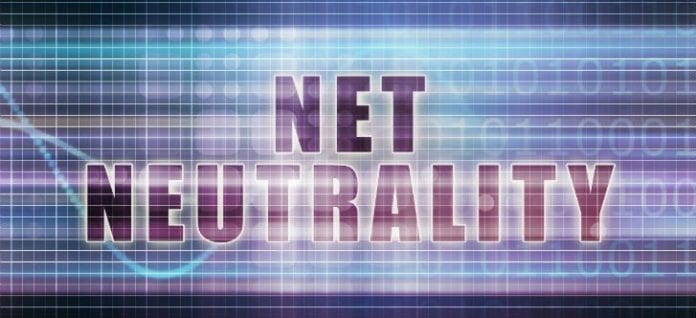The impacts on monetizing 5G network slicing remain to be seen
The Federal Communications Commission voted along party lines to reinstate Obama-era Title II telecommunications regulation of broadband services, also known as net neutrality rules.
“Broadband is now an essential service. Essential services—the ones we count on in every aspect of modern life—have some basic oversight,” said FCC Chairwoman Jessica Rosenworcel. She went on to add: “After the last FCC took away these policies despite broad public opposition, a curious thing happened. When Washington stepped out, California rode in with its own open internet regime. Other states, too. All in all, nearly a dozen put net neutrality rules into state law, executive orders, and contracting policies. So in effect, we have net neutrality policies that providers are abiding by right now in this country—they are just coming from Sacramento and places like it. I think in a modern digital economy we should have a national net neutrality policy and make clear the Nation’s expert on communications has the ability to act when it comes to broadband.”
FCC Commissioner Geoffrey Starks, a Democrat, said that the restoration of net neutrality regulation is “is about ensuring that each and every American can use their broadband subscription to access the legal content of their choosing. It is about empowering consumers to control how they experience the Internet while ensuring that their provider isn’t impeding, blocking, favoring, or prioritizing certain content. It is about ensuring that broadband, the foundation for so many interactions every day, has real oversight.”
FCC Commissioner Anna Gomez, the most recent addition to the Commission, characterized the action as one that would “reinstate appropriate guardrails to ensure that this critical conduit remains accessible and secure for all.”
However, the action to restore the FCC’s authority to regulate broadband services under Title II classification will have to survive legal challenges, which are all but certain.
Republican Commissioner Brendan Carr called the move a “power grab” with a “laundry list of bogus justifications.
“Few of them rely on actual evidence. Virtually none point to real problems. All fall apart under casual scrutiny. Indeed, it’s not even clear the FCC believes the reasons it offers today for Title II,” argued Carr. He went on to say: “Uncertainty riddles every aspect of this Order. Will consumers pay new broadband taxes? Not today, but maybe tomorrow. Can ISPs offer customized plans for consumers with unique data, speed, or cost needs? Possibly, but it depends. What about intelligent networks to prevent congestion? Sure, but only if a handful of indeterminate factors are met. Does the FCC intend to issue new regulations? Definitely, but you will have to wait and see what the agency does.” He dissented from the decision but added:” I am confident that we will right the ship. And I am certain that the courts will overturn this unlawful power grab.”
Commissioner Nathan Simington, who also dissented from the ruling, called out the complexities and realities of network management. “The internet is a limited capacity network, and performance characteristics like bandwidth, latency, and jitter are scarce resources that need to be allocated, ideally in a way that promotes competition and maximizes value to consumers. This is not an abstract point. High latency or jitter means not just choppy video calls and lagging video games but also unreliable control of physical systems like drones, cars, and industrial machinery. Conversely, high latency has little to no perceivable effect on web browsing or video streaming. So, it benefits the public for ISPs to be able to offer special low latency routing and make sure that only applications that benefit from it receive it,” Simington said. He went on to note: “Every time the Commission has attempted to impose net neutrality, it has had to create various exceptions. Inevitably, the exceptions are so expansive that they swallow the rule, so narrow that they fail to accommodate necessary traffic differentiation practices, or so vague that they stunt action through legal uncertainty rather than proscription. In any case, ‘no blocking, no throttling, and no paid prioritization’ is reduced to an empty catchphrase, and the exceptions themselves become the real rules.”
Meredith Atwell Baker, president and CEO of CTIA, also anticipated that the action will be overturned in the courts.
“The wireless industry has delivered a world-leading consumer experience that is fast, open, and fair,” Atwell Baker said in a statement. “The FCC’s decision to turn back the clock and reimpose utility-style regulations threatens to undermine this achievement, disincentivizing investment, inhibiting competition, and diverting resources from critical efforts that would advance connectivity, such as creating a spectrum pipeline, that will help ensure all Americans benefit from wireless innovation and the competition that the wireless industry brings. Today’s action exceeds the FCC’s congressional authority, and we expect the courts will reject this effort by the agency to grant itself unprecedented power over such a critical part of our economy.”
5G Americas took a slightly different tack in its response, calling for federal legislation to “end this regulatory teeter totter of uncertainty” and establish a “transparent framework of open internet principles.”
“5G Americas supports the open nature of internet access which has already become a market prerequisite in the quarter century since the Internet’s commercialization. Our mobile wireless networks provide open and transparent internet access while allowing carriers to manage their networks to perform for their customers. The market has naturally ensured open internet access, making additional government intervention in the cellular industry sector counterproductive,” said 5G Americas President Chris Pearson in a statement. “New regulatory constraints in the US could stifle innovation, reduce investment, decrease consumer benefits, slow global technological leadership and negatively affect the economy. Mobile wireless broadband has flourished in the US and there is no need to overregulate a competitive, innovative sector with outdated rules.”

